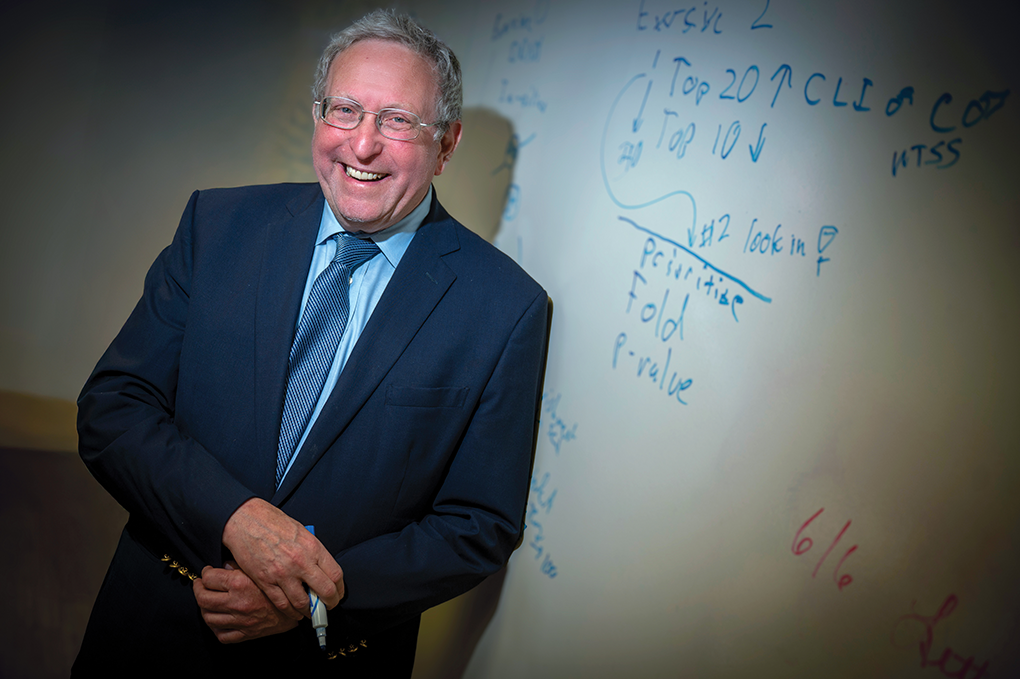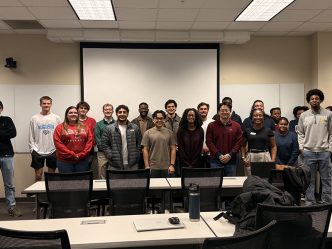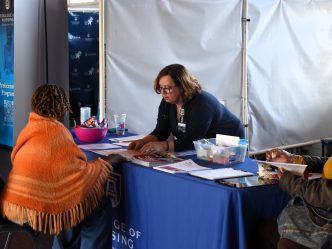A new $8.5 million grant awarded by the Leducq Foundation for Cardiovascular Research to the Medical College of Georgia at Augusta University and partnering institutions could help create better treatments for patients living with peripheral artery disease.
The Leducq Foundation is an international nonprofit organization dedicated to preventing and fighting cardiovascular disease and stroke. PAD is a common condition in which fatty deposits accumulate in arteries that supply blood to one or both legs. The arteries become narrow and often are completely blocked, leading to poor blood flow to the limbs. This can cause leg pain, impaired walking and an increased risk for amputation.
Exercise, lifestyle changes and some medications are the current recommended treatments for people with PAD, but they don’t always work. Numerous clinical trials designed to improve blood flow to the legs have repeatedly failed, proving the need for a different approach. The Arteriogenesis in Translation study will support an international network of researchers as they learn more about the formation of small arteries. The hope is that this will lead to completely new treatments for PAD and similar diseases.
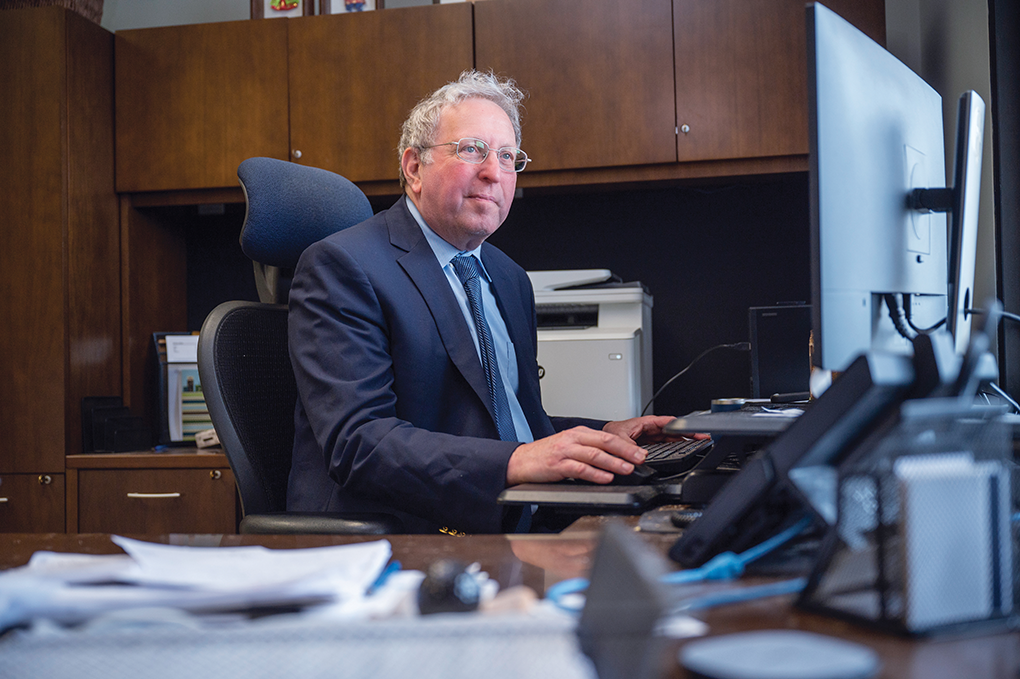
Brian H. Annex, MD, professor and chair of the Department of Medicine at MCG and the J. Harold Harrison, MD Distinguished University Chair in Vascular Medicine, will lead the U.S. research team with investigators from Yale University, Boston University and the University of Utah.
Christiana Ruhrberg, PhD, a professor of neuronal and vascular development at the University College London, will lead the U.K. and European team with researchers from University College Dublin and Oxford University.
The grant money will be split up among the universities over a five-year period.
“I have been interacting with a number of these individuals and laboratories over the years, and we have been trying to figure out ways to improve the delivery of blood and the removal of toxins from the leg skin and muscle that is beyond the blockage,” Annex said. “While addressing a problem from different ways, all of us have come to the same hypothesis as to how to overcome issues in this area.”
According to the Centers for Disease Control and Prevention, 6.5 million people in the U.S. above the age of 40 had PAD in 2021, but four in 10 of those people had no symptoms. It mainly affects older people and people who smoke and/or have diabetes. It’s just as common in men as it is in women; however, it affects the Black population at a higher rate with poorer clinical outcomes.
The condition can also be elusive, Annex said.
“I have taken care of patients who had a complete blockage in a major leg artery and had no idea they had any problem. The body can develop these very nice networks to get blood to the muscle that lacks oxygen,” Annex explained. “Viewed another way, two people can look identical from the perspective of the blockage in the major artery. Yet for some, the muscle that lacks oxygen orchestrates a response that is favorable, and in another person, it does not. The response dictates the clinical course of the patients and will be explored to develop new treatments.”
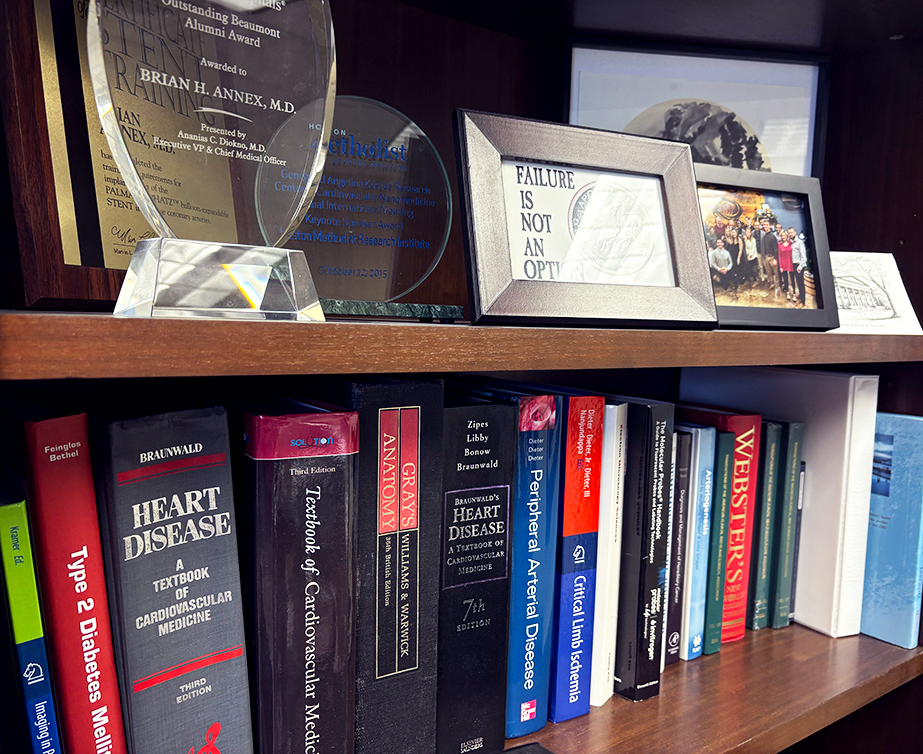
The labs will be using cells, human samples and mouse models of PAD to conduct their research.
“There’s a strain of mice that, if you cause a blockage in the leg arteries, some of them do perfectly well. Another strain – and we’re talking the same match for age, gender, all these other things – they do terribly,” Annex said. “For a long time, we’ve been trying to understand why that happens. What are the genes that drive the different responses?”
Trials and experiments that used specific proteins like vascular endothelial growth factor to grow blood vessels in the affected muscles for patients with PAD had been part of Annex and his team’s work for years to no avail.
“Every time we designed those studies and did everything to optimize treatments, they failed to help patients,” he said.
Annex now realizes patients, specifically those with the most severe form of PAD, are growing blood vessels in these muscles, but they resemble blood vessels that grow in cancer – weak and leaky. Cancer blood vessels are known to be associated with VEGF.
“In one study, patients who received vascular endothelial growth factor ended up developing leg edema or swelling. I suspect that we ended up causing vascular permeability, just not vascular growth,” he said. “It was clinically significant leg swelling at 30 days, and it resolved without major problems.”
Now armed with this knowledge, each of the labs working under the grant is attacking the issue from slightly different perspectives with the collective goal to develop a solution.
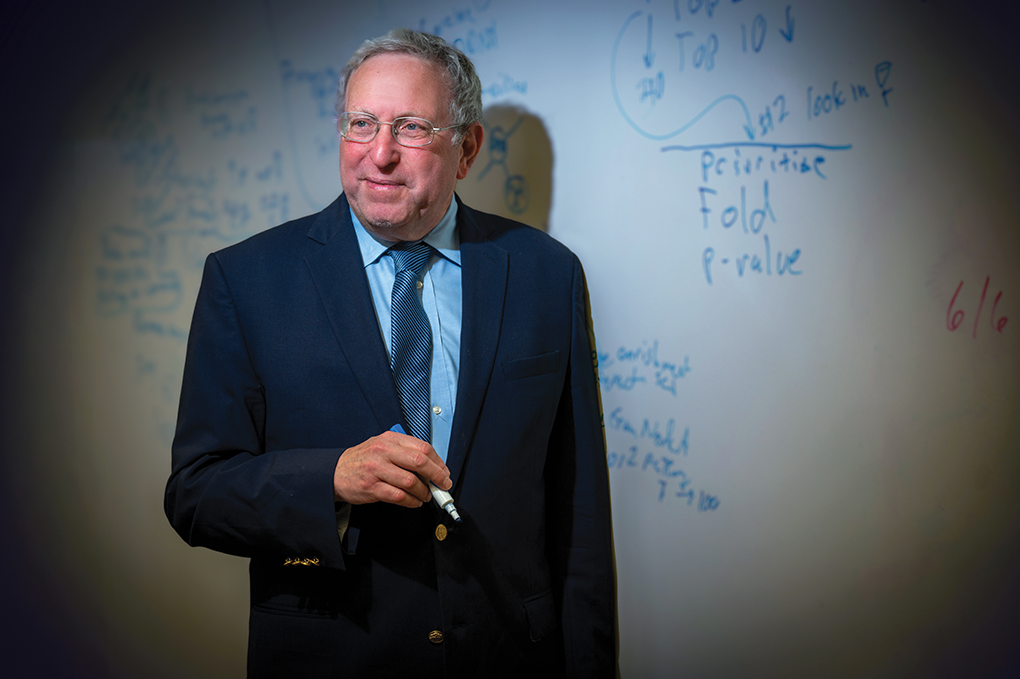
“We believe we can direct particular cells to grow blood vessels in a different way so that they are more mature, developed, not leaky and not cancer-like. That’s the approach,” Annex said.
Another question they’re aiming to answer with the study is what an endothelial cell uses to grow. If they learn that, they might be able to influence how the cells divide and proliferate to make stronger, non-leaky vessels that can deliver oxygen better.
The specifics are being worked on now, and funding for the project will start on Jan. 1, 2026. Annex is eager to collaborate with scientists across the world to find an effective treatment for a condition that affects so many.
“We look forward to the opportunity to host one of the meetings in Augusta. It will also be a great chance for our students and faculty to meet with the group coming in,” he said. “This will be a model for collaborative science – you have the opportunity to put your idea forward, defend it and hear what the criticisms are. Nobody likes criticism of their work, but if you listen to the comments and incorporate it, you can learn a tremendous amount. We’re really excited to work on this clinical problem in such a prominent forum and with a great group like this.”
Discoveries at Augusta University are changing and improving the lives of people in Georgia and beyond. Your partnership and support are invaluable as we work to expand our impact.
 Augusta University
Augusta University
